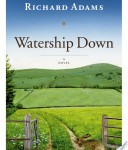
Her kingdom is populated by races of talking animals: fox-people, bear-people, bird-people, etc. Eventually she decides to invade her former world, marshaling her forces and marching back to her homeland, using technology from the Blazing World in its defense.
Cavendish, who was the Duchess of Newcastle, evens writes herself into the text:
Hereupon a Councel was called, and the business debated; but there were so many cross and different Opinions, that they could not suddenly resolve what answer to send the Empress; at which she grew angry, insomuch that she resolved to return into her Blazing- World, without giving any assistance to her Countrymen: but the Duchess of Newcastle intreated her Majesty to abate her passion; for, said she, Great Councels are most commonly slow, because many men have many several Opinions: besides, every Councellor striving to be the wisest, makes long speeches, and raise many doubts, which cause retardments. If I had long-speeched Councellors, replied the Empress, I would hang them, by reason they give more Words, then Advice. The Duchess answered, That her Majesty should not be angry, but consider the differences of that and her Blazing-World; for, said she, they are not both alike; but there are grosser and duller understandings in this, than in the Blazing-World.
I found the book through Dale Spender’s excellent Mothers of the Novel, and one reason to read Cavendish is so she doesn’t get lost. So many of the writers Spender touches upon have been obscured, while their male peers remain, and give students the impression that only men were writing. Cavendish was a notable and prolific author of her time as well as an English aristocrat who spent time at the French court. Her life is well worth investigation, full of trials and tribulations as well as triumphs.
Other speculative fiction writers have referenced this book: Alan Moore in the League of Extraordinary Gentlemen and China Mieville in Un Lun Dun. You can find the book online in its entirety here.
#sfwapro








5 Responses
The speculative novel from 1666 that I mentioned Sunday, Margaret Cavendish’s The Blazing World – https://t.co/9feD2OuNja
RT @Catrambo: The speculative novel from 1666 that I mentioned Sunday, Margaret Cavendish’s The Blazing World – https://t.co/9feD2OuNja
RT @Catrambo: The speculative novel from 1666 that I mentioned Sunday, Margaret Cavendish’s The Blazing World – https://t.co/9feD2OuNja
RT @Catrambo: The speculative novel from 1666 that I mentioned Sunday, Margaret Cavendish’s The Blazing World – https://t.co/9feD2OuNja